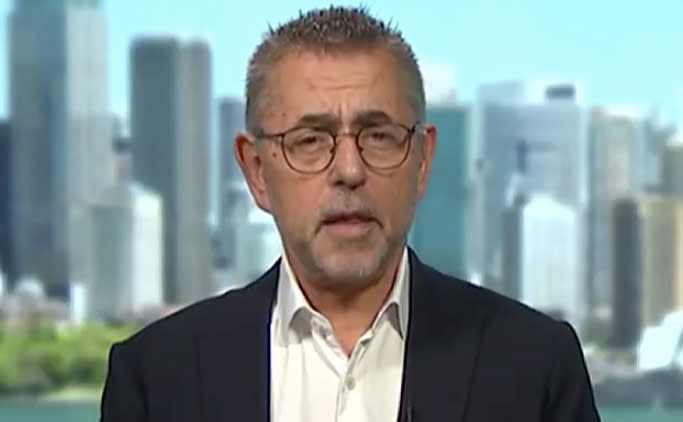Why a second coronavirus wave could be 'much worse'
As Australians begin planning life after lockdown, health experts are warning that once restrictions are lifted, it could be harder to get people to comply with more lockdown measures if a second wave of cases hits the community.
If people don’t return to strict physical distancing practices after an easing of lockdown rules, a coronavirus second wave will end up being far worse, says ABC health correspondent Dr Norman Swan.
The highly respected health communicator who has become the face of the pandemic for the national broadcaster concedes that given Australia’s strong position relative to other countries fighting the spread of COVID-19, something has got to give.
“It is unsustainable,” he said of the current lockdown on ABC TV on Tuesday morning.

“People are going to get frustrated and driven nuts by the kids at home, and something has got to be done.”
However, the inevitable restlessness of the population puts the federal and state governments in a tricky position, Dr Swan pointed out, because introducing restrictions for a second time might not achieve the same level of compliance from the public.
“If you do it too soon and you get a second wave, this is what business fears,” Dr Swan said.
“There's plenty of businesses that don't want it to be lifted too soon, because the worst thing that they can imagine is then two or three months’ time, they have to shut down again. And that's going to be very hard for government to do.”
A second wave of coronavirus infections “could be much worse because you're probably going to find it very hard to convince people to go back into lockdown,” Dr Swan said.

Survey confirms Australians are social distancing
A survey conducted by the Australian Bureau of Statistics published this week, revealed 98 per cent of respondents reported that they had been keeping their distance from people following the introduction of social distancing and isolation rules. That high rate of distancing is clearly working.
Thanks to Australia’s rapidly declining rate of new COVID-19 cases, there is an expectation restrictions will be eased in just four weeks’ time, although that will likely vary by state and territory.
However, there is one “disturbing” factor that could put the brakes on that, Dr Swan warned this morning.
“Disturbingly, there's about 10 per cent where we don't know the contact of people getting infected, albeit at very low numbers,” he said.
“But we really could get down to almost zero very quickly, and if we could just hold our water for another couple of weeks, we could be really in a very good place to lift things much faster and in a more sustained way.”
For weeks, health experts have been warning of the potentially dire consequences of lifting social distancing measures prematurely because exponential spread of the virus can see cases get out of control rather quickly.
Professor Mikhail Prokopenko, director of the Complex Systems Research Group at Sydney University, agreed that “a strong rebound” in cases would occur if people became more lax in their behaviour.
“Our model shows that on a current trajectory (that is, staying with 90 per cent social distancing), we may get to near-zero, sporadic, cases, by the end of July,” he told Yahoo News Australia earlier this month.
“There is a chance for a strong rebound, once/if the current measures are relaxed.”
Despite the optimism in Australia, the World Health Organisation warned overnight that “the worst is yet ahead” for the global pandemic.
“We want to re-emphasise that easing restrictions is not the end of the epidemic in any country,” WHO chief Dr Tedros Adhanom Ghebreyesus said.
Do you have a story tip? Email: newsroomau@yahoonews.com.
You can also follow us on Facebook, Instagram and Twitter and download the Yahoo News app from the App Store or Google Play.





